
AGENDA of the Final event
The Final event is getting closer. Have you registered, yet?
REGISTRATION is open till 22 November. You can register HERE.
Please find the final agenda....
TRAM project is designed to strengthen the urban dimension of regional and local policymaking, contributing to the implementation of EU Transport White Paper, Urban Agenda and the EU 2020 strategy and facilitating the shift to low carbon economy. In this sense, TRAM project contributes to the development of a competitive, resource-efficient and low-carbon oriented European transport system by improving the efficacy of regional and local policies on urban mobility of EU 5 partners which will benefit from cooperation by the exchange of experience and the identification of measures to be included in their urban mobility policies.
€1,290,909.00
Low-carbon economy
TRAM Project will develop a more competitive regional policies on urban mobility
The policy instrument aims at increasing sustainable mobility in urban areas, achieving economic, social and territorial cohesion in line with Europe2020 Strategy. The proposal focuses on Investment Priority 4.e Promoting low- carbon strategies for all types of territories, in particular for urban areas, including the promotion of sustainable multimodal urban mobility and mitigation-relevant adaptation measures acting through 4 actions: Act.14.1- measures for the renewal of the public transport’s fleet and for promoting eco-friendly transport’s modes discouraging the use of private vehicles/ Act.14.2- application of intelligent transportation system (ITS)/ Act.14.3- Promotion of electric vehicles for public and private use, including the creation of necessary charging points also exploiting alternative energy sources/ Act.14.4– construction of infrastructure and interchanges hubs aimed at increasing collective mobility and environment-friendly distribution of freights and concerned transport systems. The reason lies on the still prominent role of roads for the transport of goods and passengers, affecting air quality in urban areas which are most densely populated. The use of Local Public Transport (LPT) is lower than national average and road transport are more used than railway ones. Moreover, LPT fleet is composed mainly by old vehicles, having a negative impact on energy consumption as well as on air quality and CO2 emissions.
The ROP aims at building strategies for an economy less dependent on carbon especially in urban areas by encouraging urban sustainable multimodal mobility (PI 4.5). It supports new models of urban mobility thus promoting accessibility and sustainability. The main challenge is to promote clean urban transport systems such as public transport, cyclist, pedestrian and electric mobility, clean energy supply system, through the following actions:
1. Construction of cycle paths to ensure full functionality of the Andalusian Bicycle Plan 2014-2020 network thus contributing to the achievement of higher levels of sustainability. In 10 main Andalusian cities the Plan proposes 400 km of new roads and 800 km in the metropolitan areas
2. Actions aimed at building reserved for public transportation platforms
3. Activities aimed at developing sustainable mobility plans in metropolitan areas
4. Actions aimed at energy optimization of transport facilities mostly related to the ones already operated and owned by the regional Government
5. Development of tourism activities based on the use of alternative transport modes: electric vehicles for mobility, urban design cycle routes or specialized support to SMEs and Segway for rental services of bicycles or electric vehicles
Thanks to the project, new solutions for urban mobility, especially regarding ITS, control access, measures to promote active mobility, use of electric vehicles for passengers and freights will be identified.
The instrument governs the use of the so called regional growth funds. The funds are used as co-financing for participation in ERDF initiatives. Priority – Accessibility , Specific objective – In 2020 Blekinge has an attractive and sustainable transport system that develops from the needs of the inhabitants, labour market and visitors. Measures and actions – 1. Shorten travel times both on railway and road – efficiency measures, time table adjustments etc.; 2. Development of public transport; 3. Increase opportunities to commute to work or travel for business on foot, by bicycle or by using public transport and 4. Increase use of renewable fuels in the transport system. The policy instrument should be improved in order to better define the strategic focus of the strategy, to develop more detailed targets that are supported by the priorities in the ERDF ROP and in order to make most use of resources. There is a need to prioritize action and measures of the regional growth funds (dictated by the Regional Development Strategy), so allowing PP responsible for this policy instrument to streamline the regional strategy in its connection to ERDF.
In Hungary there are only national level Operational Programs financed from the Structural Funds, including the Territorial Operational Program (TOP), which is dedicated to finance the local programs. ITP is a decentralized program, established by government decision, supporting the implementation of ERDF TOP Operational Program (priority 6 – development of urban environment).
The ITP priority areas and measures supporting the improvement of urban mobility are: Priority 2 Integrated rehabilitation: development of integrated and efficient transport infrastructure. Priority 3Ecoprogram: transport developments are planned to contribute to reduce the level of CO2 in Miskolc, one of the most polluted cities in Hungary ; improvement of the missing parts of the cycle path, to answer to the lack of a comprehensive cycle route system in Miskolc; publicity of the sustainable transport in frame of the Eco transport (slow city concept) and development of a public bicycle system, since no bicycle system is currently in place and to contribute to increase the awareness, currently very low, of environment friendly solutions; intelligent traffic regulation system since demand driven regulation and transport services are limitedly available at the moment.
The ROP addresses the major development challenges for Romania such as sustainable urban development at regional and local level. The ROP targets the Priority Axis 4: “Supporting sustainable urban development”. It responds to the Investment priority 3.2. ”Promoting low-carbon strategies for all types of territories, including the promotion of sustainable multimodal urban mobility and mitigation-relevant adaptation measures” aiming at the Specific Objective 4.1. “Reduction of carbon emissions in county municipalities based on sustainable mobility plans” by ensuring the road infrastructure establishing a coherent strategy for roads management in line with sustainable mobility policy.
The priority investment will support:
1. urban public transport (e.g. acquisition of eco-friendly vehicles, development e-ticketing, construction of bicycles lanes)
2. electric and non-motorized transport (e.g. building the infrastructure for electrical transport including power stations for electric cars, construction of routes for cyclists)
3. other actions aimed at reducing CO2 emissions in urban areas (i.e. video monitoring systems based on innovative tools and efficient traffic management).
The main result expected is to limit the greenhouse gases emissions and support the shift toward a low carbon economy. Also, there is a need to share experiences in urban logistics and deployment of ITS solutions in urban areas in order to exploit the know-how achieved through cooperation to the OP.

The Final event is getting closer. Have you registered, yet?
REGISTRATION is open till 22 November. You can register HERE.
Please find the final agenda....
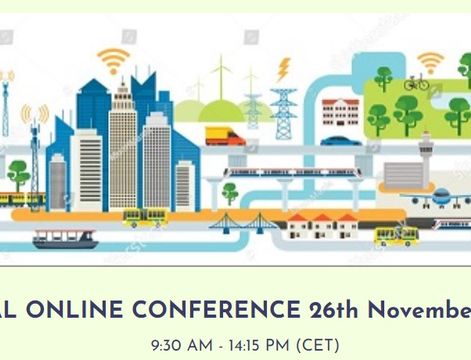
We are back on track!
TRAM Final dissemination event will regularly take place on 26 November 2020.
The link to the on-line platform will be provided vi...

TRAM Final dissemination event has been postponed, due to technical reasons.
It will take place in November 2020.
We will keep you posted about the exa...
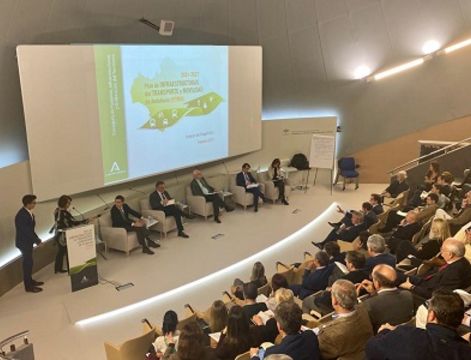
Public Works Agency of Andalusia Regional Government is an integral part of the Department of Development, Infrastructures and Land Planning and is in charge of...

City of Miskolc, PP4 in TRAM project, has recently launched a cycling application within the pilot action of the project, to promote healthy lifestyle towards a...
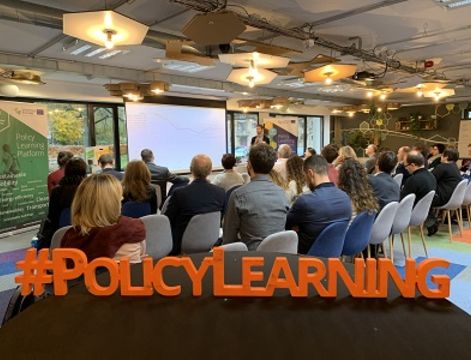
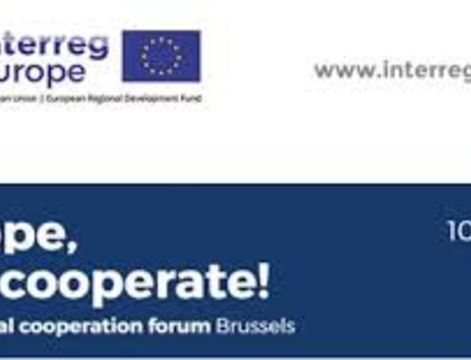
TRAM project has been present at the 5th interregional cooperation forum entitled 'Europe, let's cooperate!', taking place in Brussels on the 10th and 11th of A...

TRAM project is proud to announce that the sixth issue of the project newsletter is OUT now.
Take a moment to read what TRAM project has been up to and what t...
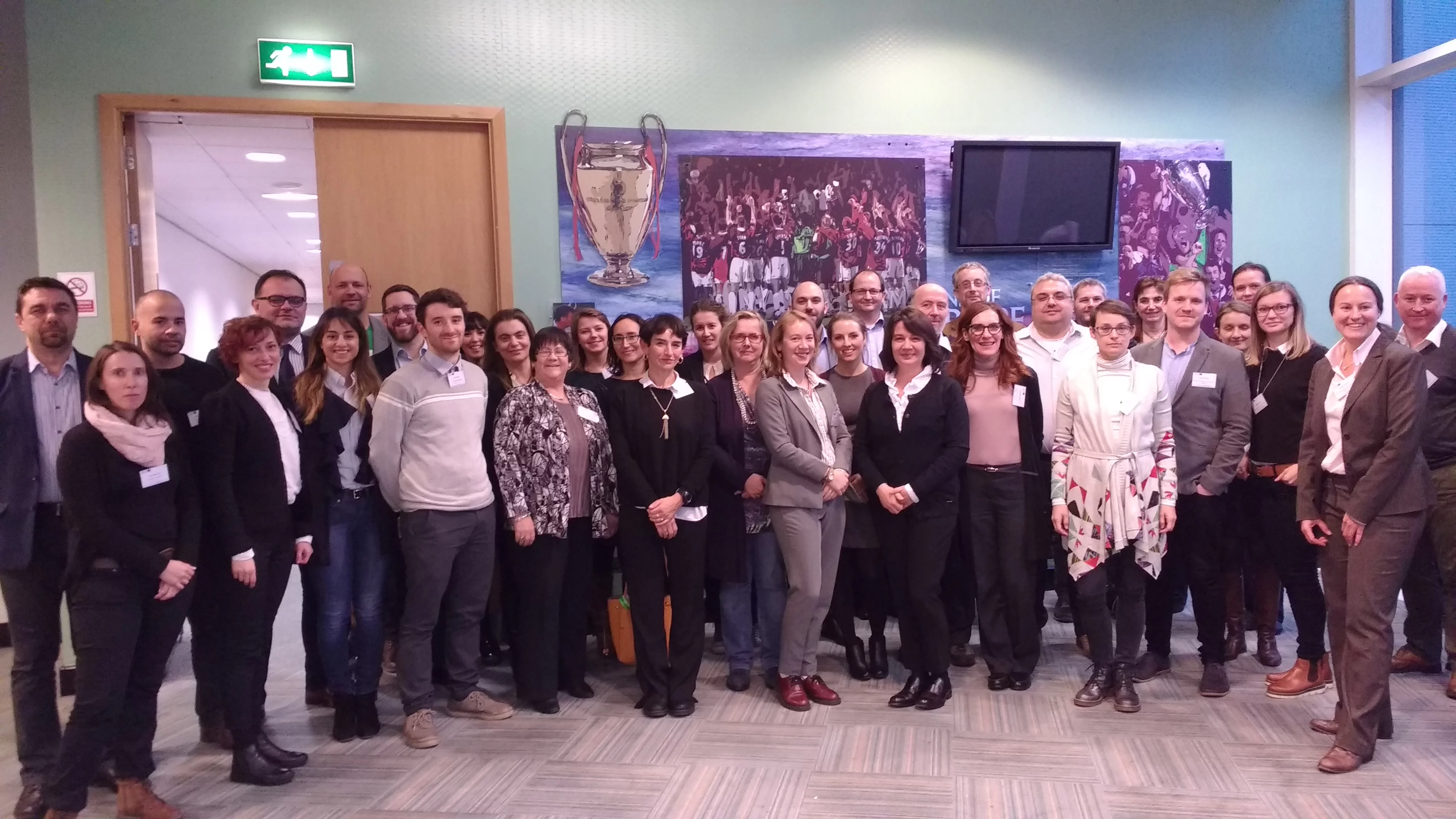
The Interreg Europe programme has published conclusions of the Sustainable Mobility Policy Learning Platform Thematic Workshop held in Manchester, UK, last Nove...

The Interreg Europe Policy Learning Platform organizes an important learning event in Manchester, next week.
The Sustainable mobility workshop will take plac...